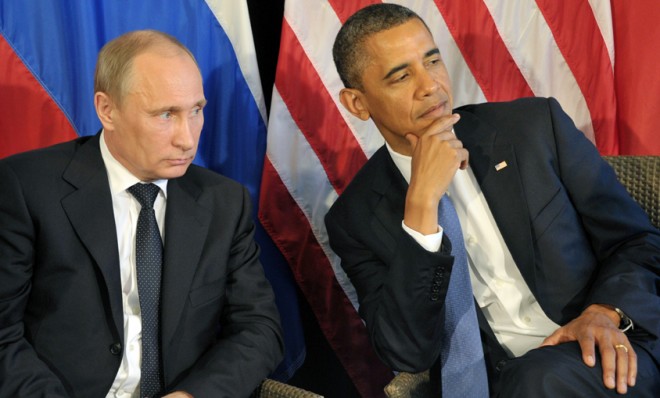Obama's spectacularly disastrous Syria accomplishment
The president completely botched his chance to win an honorable peace


A free daily email with the biggest news stories of the day – and the best features from TheWeek.com
You are now subscribed
Your newsletter sign-up was successful
"There is such a thing as a man being too proud to fight," proclaimed Woodrow Wilson in 1915. "There is such a thing as a nation being so right that it does not need to convince others by force that it is right."
Despite this rhetoric, Wilson, of course, eventually led America into World War I. And until President Obama utterly botched his handling of Syria, America was positioned to make this early Wilsonian argument — to demonstrate, as Wilson said, the "splendid courage of reserve moral force."
Now, instead of taking a page from early Wilson, Obama seems to be taking a page from late Jimmy Carter.
The Week
Escape your echo chamber. Get the facts behind the news, plus analysis from multiple perspectives.

Sign up for The Week's Free Newsletters
From our morning news briefing to a weekly Good News Newsletter, get the best of The Week delivered directly to your inbox.
From our morning news briefing to a weekly Good News Newsletter, get the best of The Week delivered directly to your inbox.
That's too bad, because there is something to the "too proud to fight" theory. After all, who says going to war always demonstrates toughness? Why should we — a strong nation — be pushed into war? Strong nations, after all, get to decide when and where to fight. Strong nations aren't reactive. They proactively make decisions based on their own interests, values, and timetables.
Worrying about how other nations might perceive our decisions (this was the key argument many of the most prominent hawks used to justify intervention) is an ironic way of demonstrating strength. In fact, it shows weakness. Strong people — strong nations — don't spend a lot of time worrying about what others think of them.
President Obama might have adopted this thinking, and in doing so, he might have kept us out of war honorably. Or, he might have gone the other direction and sent a strong message to Assad, and this might all be over by now.
Either way, we very well might have been in a stronger position than we find ourselves in today.
A free daily email with the biggest news stories of the day – and the best features from TheWeek.com
Instead, from the botched "red line" declaration to the last-minute decision to seek congressional approval to being outmaneuvered by Vladimir Putin to the meandering prime-time speech, Obama has had the worst of both worlds.
Think I'm being hyperbolic? Consider this from last Wednesday's New York Times:
Mr. Putin has eclipsed Mr. Obama as the world leader driving the agenda in the Syria crisis. He is offering a potential, if still highly uncertain, alternative to what he has vocally criticized as America's militarism and reasserted Russian interests in a region where it had been marginalized since the collapse of the Soviet Union.Although circumstances could shift yet again, Mr. Putin appears to have achieved several objectives, largely at Washington's expense. He has handed a diplomatic lifeline to his longtime ally in Syria, President Bashar al-Assad, who not long ago appeared at risk of losing power and who President Obama twice said must step down. He has stopped Mr. Obama from going around the United Nations Security Council, where Russia holds a veto, to assert American priorities unilaterally.More generally, Russia has at least for now made itself indispensable in containing the conflict in Syria... [New York Times]
I don't know how anyone can read this and not be terribly, terribly embarrassed. The real shame is that President Obama had the chance to demonstrate toughness and avoid being dragged into a senseless war where there were no good guys to support. Instead, he dithered. And now, we have what seems to be a dishonorable peace. And that really could invite future provocation. It was really quite a spectacularly disastrous accomplishment.
What is more, rather than setting a new precedent regarding congressional approval, Obama may very well have made it more likely the next president will act unilaterally. After all, why risk looking this foolish?
Matt K. Lewis is a contributing editor at TheWeek.com and a senior contributor for The Daily Caller. He has written for outlets including GQ Politics, The Guardian, and Politico, and has been cited or quoted by outlets including New York Magazine, the Washington Post, and The New York Times. Matt co-hosts The DMZ on Bloggingheads.TV, and also hosts his own podcast. In 2011, Business Insider listed him as one of the 50 "Pundits You Need To Pay Attention To Between Now And The Election." And in 2012, the American Conservative Union honored Matt as their CPAC "Blogger of the Year." He currently lives in Alexandria, Va.
